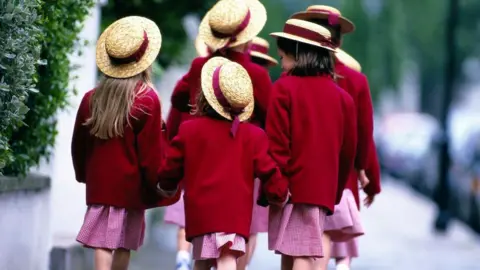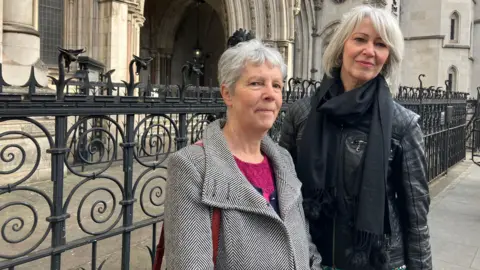Private schools lose High Court challenge over VAT changes
 Getty Images
Getty ImagesThree High Court judges have dismissed a legal challenge over the government's policy of adding VAT to private school fees.
Lawyers representing families and private schools at the judicial review hearings had argued that the policy was discriminatory and in breach of human rights law.
Julie Robinson, chief executive of the Independent Schools Council, which represented some of the families, said it was carefully considering the court's judgment and next steps.
The government said it welcomed the judgment, with a spokesperson adding that the policy would raise £1.8bn a year to support pupils in state schools.
VAT on private school fees was introduced on 1 January across the UK.
Three separate claims were brought against the government from families with children with special educational needs and disabilities (Send), those attending same sex schools, and low-paying faith schools.
Some of the families had argued that they had no alternative schools in their area to meet the needs of their children with Send, and that the policy was "unprecedented" throughout Europe.
But barristers representing Chancellor Rachel Reeves, as well as HMRC and the Department for Education, said they wanted to raise standards for the 94% of children who attend state schools by making private school parents pay "their fair share".
Dame Victoria Sharp, Lord Justice Newey and Mr Justice Chamberlain found that the policy was "made by Parliament, in primary legislation, after full debate and was a manifesto commitment".
Their 94-page judgment says that the government was well aware that some families would no longer be able to afford private school fees - including those with children with Send, those with religious convictions or those who prefer single-sex education - but that it was "entitled to consider these factors to be outweighed by the expected revenue raised for public services".
The court found that while the legislation does interfere with some of the group's human rights, there is a "broad margin of discretion in deciding how to balance the interests of those adversely affected by the policy against the interests of others who may gain from public provision funded by the money it will raise".
 Vanessa Clarke/BBC
Vanessa Clarke/BBCSophie Kemp, from the law firm Kingsley Napley, which represented some of the families, said it was a "disappointing decision" but that it had been important to challenge the government's policy.
"The court felt that it was not able to interfere because of the leeway it must give to Parliament," she added.
Some of the schools and families who were supported by the Christian Legal Centre say they plan to appeal against the judgment.
Caroline Santer, head teacher at The King's School, in Fair Oak, Hampshire, said the judgment was "a huge disappointment" to receive after two months of waiting, adding that they would "continue to challenge the legality of this policy".
The government says the High Court decision confirms that the legislation is compatible with its human rights obligations.
